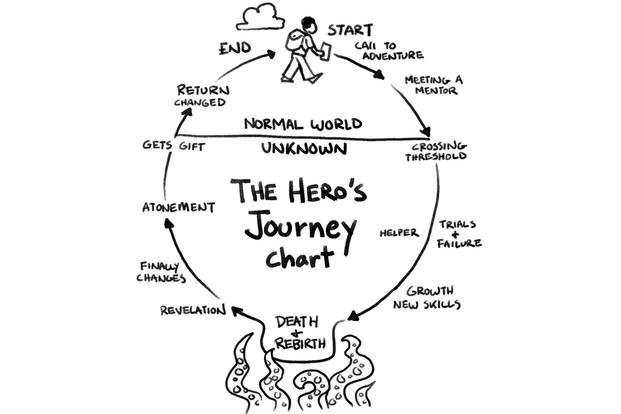Job seekers often make the mistake of summarizing their resume in their cover letters and simply use template language to introduce themselves -- if they write a cover letter at all.
But cover letters can be a powerful way to utilize storytelling to grab the attention of a hiring manager and showcase why you're the right candidate for the job.
A well-organized, compelling narrative is at the heart of a well-crafted cover letter. This is your opportunity to take the hiring manager on a journey, highlighting the tribulations and triumphs that helped you acquire the right skills and life experiences to make you an ideal fit.
Related: Search for Veteran Jobs
In some ways, a cover letter can be more important than a resume, which is often analyzed by applicant tracking systems before a human ever sees it.
"One of the most important things we looked for in a candidate is how well they fit in with our culture," said Stacy Bettencourt, former director of human resources at Fisher Scientific. "It's always impressive when a candidate can engage us with a powerful story about why and how they would be an asset to our company."
Bettencourt said she often looked for candidates who did their homework by showing that they understood the company culture and the job requirements, by telling a story that linked their work experience (and sometimes their personal lives) to their enthusiasm for a prospective company.
Cover Letter Do's and Don'ts
Cover letters should never simply repeat what's in your resume. A brief, bulleted list of your qualifications can sometimes be appropriate if it's tied to your story and doesn't simply repeat what's already in your resume.
Your cover letter should have a strong introduction, a plot, body and conclusion. It should fit on a double-spaced, single page with standard margins. "Impossible," you say?
Here's how to do it:

- Think small. Think about how you might share a story of your life with a stranger if you had only a few minutes.
- Identify a story from your time in service that was particularly difficult. Drop your reader into the story after something already has happened. (Never start at the very beginning; it's boring and takes too much time.)
- Identify and describe the conflict and the aftermath.
- How did you overcome, and what did you learn?
- How does what you learned make you an asset to the company?
- Complete the story circle. Conclude by mentioning something you wrote in your opening and how that makes you the right candidate.
- Be authentic. There's no reason to make up or overdramatize your experiences. It doesn't matter whether you were never in combat (fewer than 10% of troops ever experience combat). All service to this country has merit. Believe in the power of your story and the difficulties and challenges you overcame. Your accomplishments are important.
- But in your efforts to be authentic, be careful not to overshare. Relate only the essential elements of the story and strike a balance between your personal and professional experiences.
Find the Right Veteran Job
Whether you want to polish your resume, find veteran job fairs in your area or connect with employers looking to hire veterans, Military.com can help. Sign up for a free Military.com membership to have job postings, guides and advice, and more delivered directly to your inbox.












